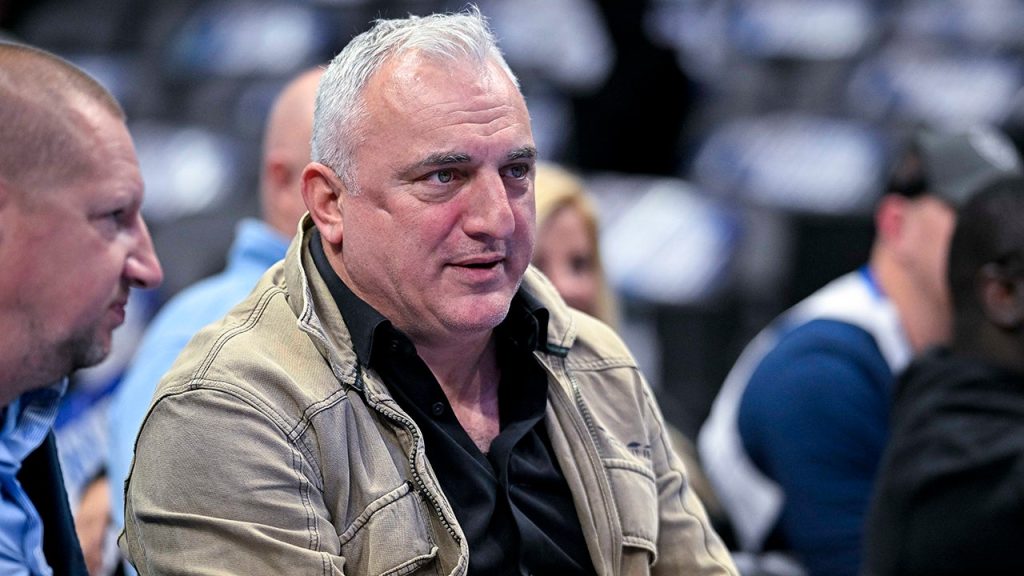The Dallas Mavericks’ decision to trade Luka Doncic to the Los Angeles Lakers sent shockwaves through the NBA, sparking a flurry of reactions and analyses. Doncic’s father, Sasa Doncic, publicly expressed his displeasure with the Mavericks’ handling of the situation, characterizing their treatment of his son as “very unfair” and “hurtful.” He criticized the perceived secrecy and hypocrisy surrounding the trade, emphasizing Luka’s dedication and sacrifices for the team and the city of Dallas. Sasa Doncic believes Luka did not deserve such treatment, especially given his unwavering respect for the organization and his significant contributions to the community. He felt the Mavericks’ actions were a betrayal of Luka’s loyalty and commitment.
Sasa Doncic directly addressed the reports suggesting concerns about Luka’s conditioning, dismissing them as unfounded. He highlighted Luka’s demanding playing schedule, often involving 40 minutes per game against relentless defensive pressure, and questioned the fairness of criticizing his fitness after such a grueling workload. Sasa Doncic argued that Luka’s performance throughout the season spoke for itself and invalidated any doubts about his conditioning. He challenged the Mavericks to stand by their decision without resorting to excuses or attempting to shift blame. The implication was that the organization was attempting to justify their actions by unfairly portraying Luka in a negative light.
The trade itself was a seismic event in the NBA landscape, given Luka Doncic’s status as a young superstar with a proven track record of success. At just 25 years old, Doncic had already achieved remarkable milestones, including leading the Mavericks to the NBA Finals and earning multiple All-Star selections. His departure from Dallas marks a significant shift in the league’s power dynamics and raises questions about the Mavericks’ future direction. Despite acquiring established players like Anthony Davis and Kyrie Irving, the Mavericks face the daunting task of replacing a generational talent and rebuilding their team identity.
The trade also has significant financial implications for Luka Doncic. While he no longer qualifies for a supermax extension with Dallas, the Lakers have the option to offer him a substantial contract extension, though for a lesser amount. This financial aspect adds another layer of complexity to the already dramatic situation, highlighting the business side of professional basketball and the intricate negotiations that often accompany player movements. Doncic’s future earnings and potential endorsement deals will undoubtedly be impacted by this trade, making it a pivotal moment in his career off the court as well.
The reaction from Mavericks fans was understandably mixed, with many expressing disappointment and frustration over the loss of their franchise player. A symbolic funeral held outside the American Airlines Center underscored the emotional impact of Doncic’s departure. Fans mourned the loss of not only a talented player but also a beloved figure who represented the team’s hopes and aspirations. The Mavericks’ front office, led by General Manager Nico Harrison, faced intense scrutiny for their decision, with many fans questioning the logic behind trading a player of Doncic’s caliber. Harrison attempted to justify the move by emphasizing the potential for future success, but his explanations failed to appease a significant portion of the fan base.
The immediate aftermath of the trade saw the Mavericks struggle on the court, suffering a significant loss to the Cleveland Cavaliers. The absence of both Anthony Davis and Kyrie Irving further compounded the team’s challenges, highlighting the need for time and adjustments to integrate the new players into the roster. The Mavericks’ performance in the coming weeks and months will be closely watched as they attempt to navigate the post-Doncic era and demonstrate the validity of their decision to trade away their star player. The long-term consequences of this trade will undoubtedly shape the trajectory of both the Mavericks and the Lakers franchises for years to come.

